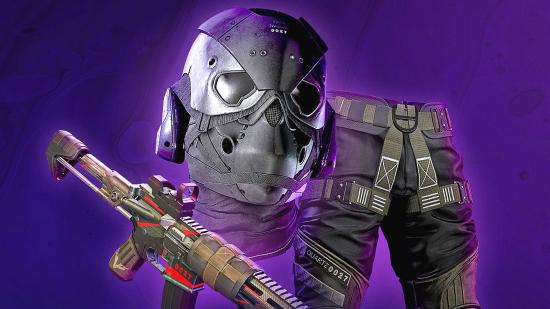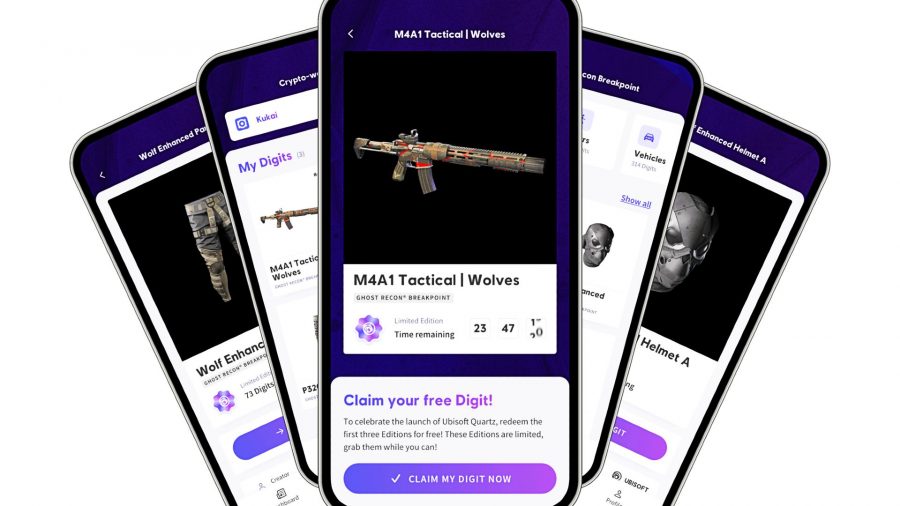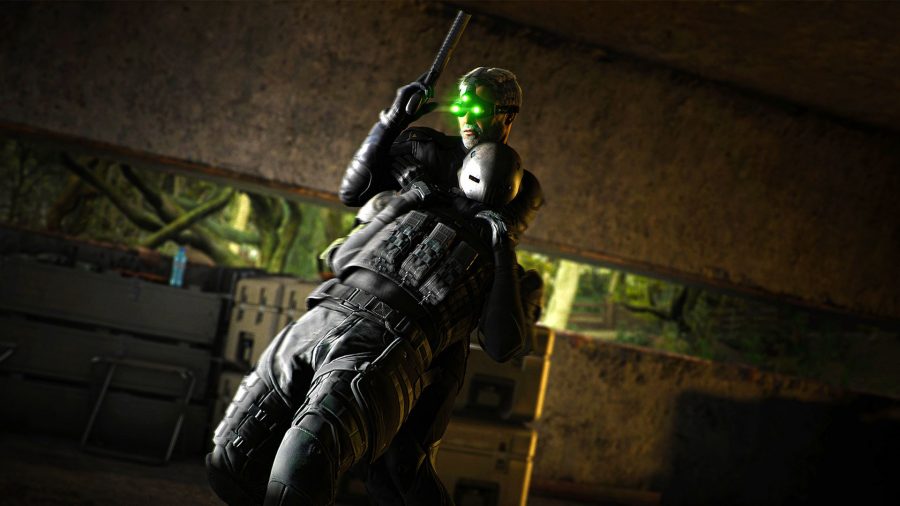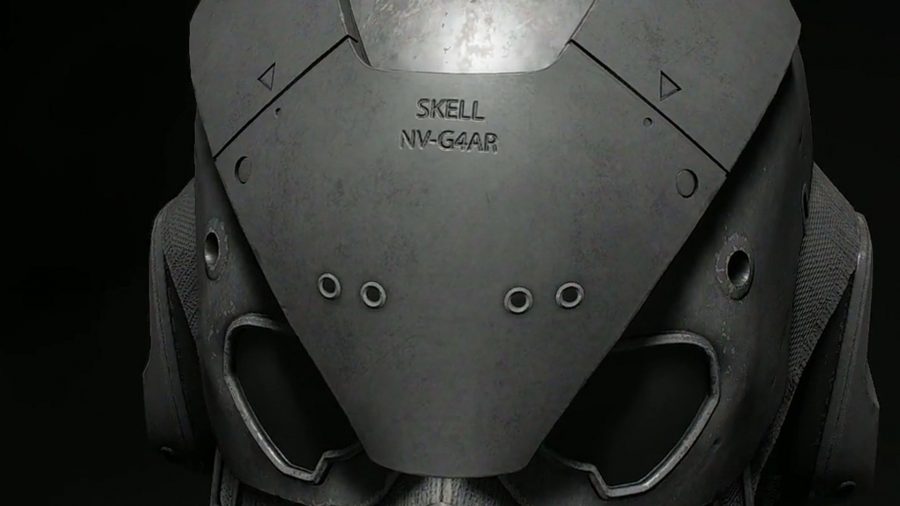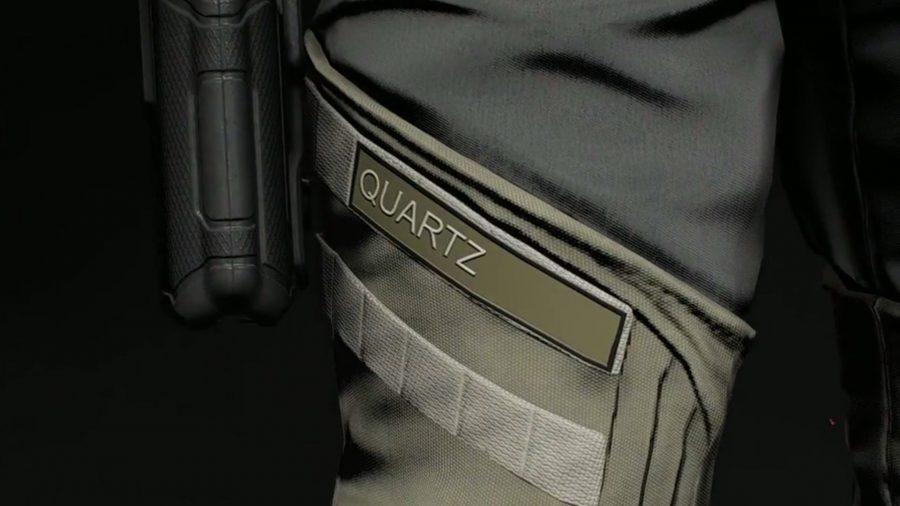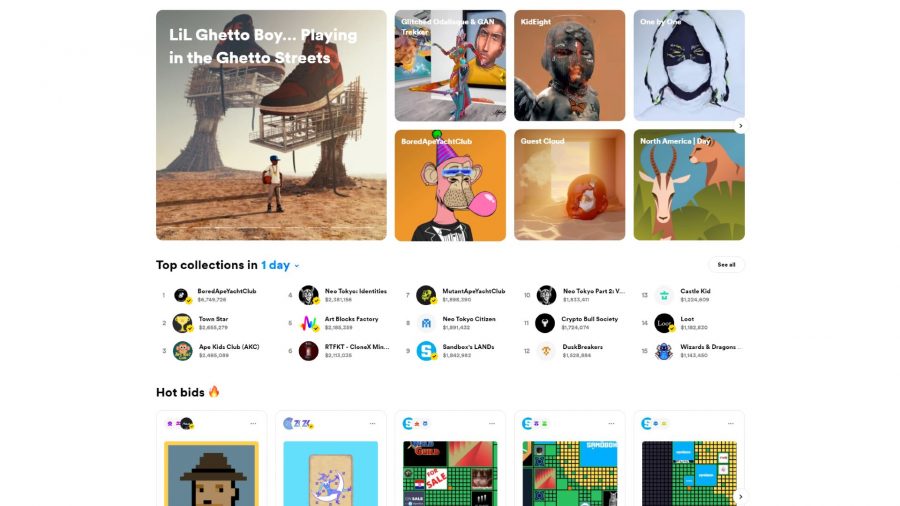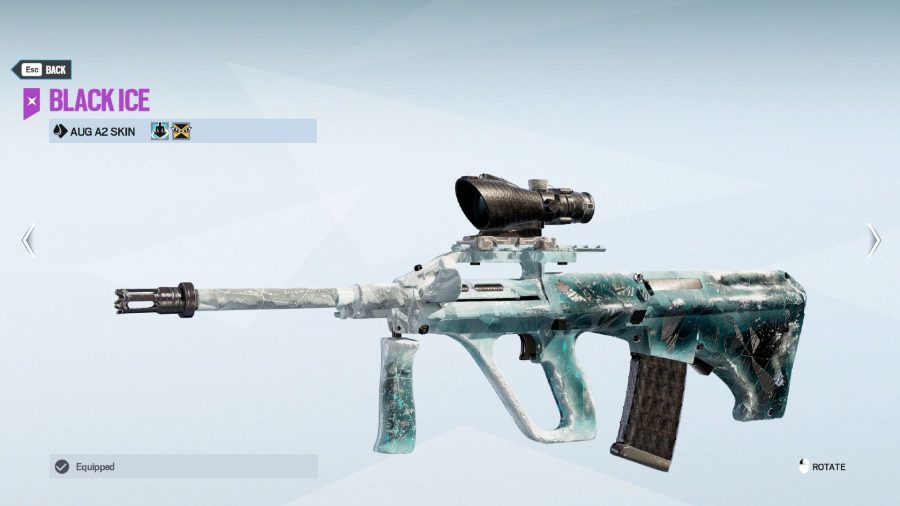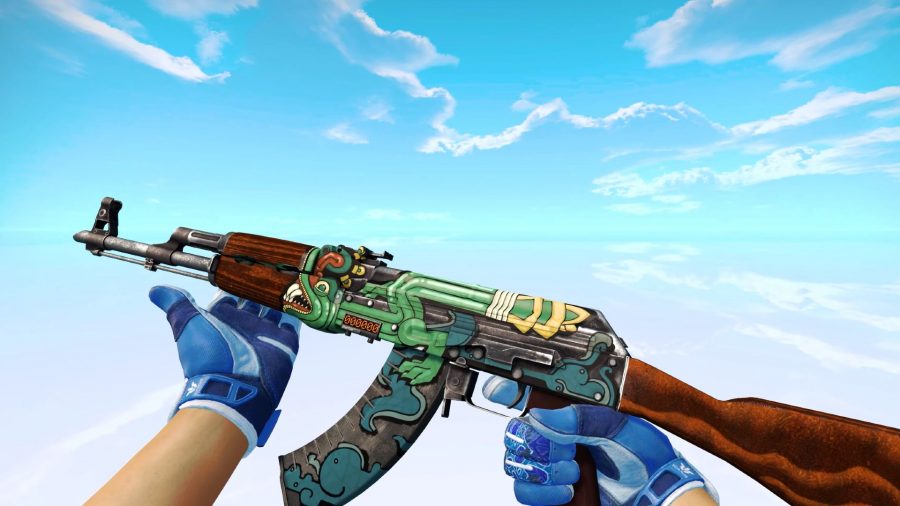Earlier this week Ubisoft unveiled its vision for the future of NFT games. Its platform, Ubisoft Quartz, claims to be the first of its type in offering NFTs (non-fungible tokens) that players can acquire, use, and sell within triple-A games – Ghost Recon Breakpoint, in this first case. The reaction has been overwhelmingly negative, with over 38,000 dislikes on the announcement trailer and a storm of complaints from prominent streamers and content creators on social media. At the time of publication, the ‘like’ count has only just hit 1,400.
You’re probably already familiar with the criticisms facing crypto and NFT games. The technology has a potentially catastrophic impact on the environment, they’re susceptible to scammers and money launderers, and there are big holes in current regulation. What often gets overlooked in these discussions is why blockchain technology matters for the vast majority of its uses, or indeed how any of this benefits the average consumer.
To be clear, there is potential in the ideas behind contemporary NFT usage – the fundamental concept that it should be easier for creators to protect, sell, and manage their work has merit – but Quartz, much like the rest of the NFT market, doesn’t represent those ideals. Quartz is being marketed in loftier terms: empowering consumers through ownership. If you get one of Ubisoft’s NFTs (called Digits) then the company says that you own a unique version of an in-game item that you’re free to sell to other players. But it’s not that simple, and Quartz’s terms of use illustrate just how flawed this NFT gambit is.
Here’s how Ubisoft says Digits will work: in-game cosmetics are released in limited batches that make up an “immutable number of items”; each item has a unique serial number that can be seen in-game; and you can sell your Digit whenever you want, ’empowering’ you by – what else – letting you make some money.
The website claims that Digits are energy-efficient NFTs, which utilise proof of stake security mechanisms, rather than more demanding proof of work blockchains such as Bitcoin and Ethereum – that’s a good start. But then there are promises that Digits are playable, ownable, and unique.
We’ll address the term ‘playable’ first. Now I don’t know about you, but wearing a hat with a serial number on it doesn’t constitute ‘play’ to me. In fact – and this is probably the biggest positive of the whole announcement – there’s no ‘playable’ aspect to any Digit. Quartz’s FAQ explicitly says “Digits are purely cosmetic items that do not influence the gameplay, be it PvE or PvP.” So, no, they’re not playable.
Owning and selling cosmetics that are earned in-game isn’t something that I care about, but nor is it necessarily an awful idea. The notion that you can get some tangible return from rare cosmetic items, whether you’ve earned or purchased them, is appealing for several reasons. Supposedly, you own that item, so regardless of the state of the game the item is from, you possess an asset of some value. If the game has a Rainbow Six Siege-style resurgence then your initial loyalty is likely going to be rewarded as the value of rare skins skyrockets. You don’t even have to be around for that resurgence; you can just log into Quartz, collect your Digit, and make back some of the cost of your original purchase.
There is, of course, the question of what happens if your Digit comes from a game that’s fallen on hard times. For an example of how that might turn out, have a read of Ian Boudreau’s excellent piece on the connection between NFTs and Valve’s failed card battler, Artifact.
Much of the noise coming from blockchain advocates suggests that NFTs from one game will, one day, be ‘playable’ across several. If that happens, your cosmetic items could gain a degree of permanence. It wouldn’t matter if Ubisoft pulls the cord on Breakpoint’s servers, in principle, as you could use your Digit in its sequel, or perhaps in a new Splinter Cell game if we ever get one. Quartz’s website is very vague about the future of Digits, but lines like “this is just the beginning” and “for this first experience” seem to hint at a massively expanded future. A Ubisoft blog post, featuring blockchain product director Baptiste Chardon, teases a little more: “This new approach can even, on a longer term, open up new opportunities such as interoperability between games”.
We put this point to Ubisoft, and its response doubles down on the intent. “Blockchain’s built-in interoperability also paves the way for a fundamental framework that would allow for true interconnection between game worlds at a technical level, opening the door to new decentralised applications, like assets interoperability”, Ubisoft says.
To be absolutely clear, that’s not being promised anywhere on the Quartz platform, so this particular aspect of the NFT future promised by crypto bros is moot, for now at least. It’s also worth pointing out that if Ubisoft does pursue this blue-skies endeavour then the development resource is likely to be astronomical, especially if it wants players to be able to use Digits in non-Ubisoft games – and there’s no reason why it would.
Judging from the wording of Quartz’s terms of use, that’s unlikely to ever be the case. You see, according to the document, you own the underlying NFT, but Ubisoft owns its visual representation and agrees to license that representation to you under extremely limited conditions. “We grant to you a limited, non-exclusive, worldwide, revocable licence to access, perform, and display the visual representation of your Digit,” article 5.3 of the document states, “solely for the following purposes: for your own personal, non-commercial use, as part of the game experience and to hold in your crypto-wallet; to transfer or otherwise dispose of your Digit through the marketplaces.” In essence, you own the NFT for a cool spec ops hat, but Ubisoft owns the IP rights for said hat indefinitely. You can display it in-game or in a crypto wallet, but nowhere else.
But there’s good news in article 10, which covers what happens if Ghost Recon Breakpoint or Ubisoft Quartz is shuttered. “Even if we decide to stop operating Ubisoft Quartz and/or the game, you will continue owning your acquired Digits, as they are stored on the Tezos blockchain network, which is decentralised and completely independent from our infrastructure. This means your Digits will live on beyond Ubisoft Quartz or the game, and you will still be able to transfer them”.
That’s awesome!
But wait… “However, this also means that the licence granted to you under article 5.3 will partially cease as you will no longer be able to use your Digit as in-game content, without any liability to Ubisoft.”
Not so awesome.
Ubisoft’s response to this is that “For any real-life toy or collectable cards, the purchaser does not acquire the IP ownership. Similarly, our players benefit from a licence, from Ubisoft, on the visual representation of the item. Having ownership of the token, which links to metadata that’s stored on a decentralised network, means that players are no longer tied to Ubisoft: the token and their visual representation exist beyond Ubisoft’s ecosystem.”
Of course, if you have a real-life toy then the IP rights holder can’t retract the licence at will, which the terms of use clearly state is possible. And while it’s reassuring that both the NFT and its visual representation can exist outside of Ubisoft’s walled garden, the only place it can currently do so is inside a crypto wallet.
All of these points have been made about NFTs in the past, but there’s something so stark about reading them in an official document, just a hyperlink away from the marketing buzzwords that promise control, uniqueness, and even fame.
There’s a bigger question that’s not answered outside of the terms of use: why is Ubisoft doing this anyway? The obvious answer is money, but you might wonder exactly how they plan on making money from this, especially when the first bundle of cosmetics is being given away for free.
There’s a pretty big clue in article 4.2 of the terms of use: “we, or our designees, may take a fee based on the total value of the transaction for each transfer of a Digit that you make through any marketplace”. Worryingly, that fee isn’t disclosed anywhere on the site, but it suggests that Ubisoft is gunning for secondary market sales. It doesn’t matter if future Digits don’t make the company much money through direct sales – what matters is that there are plenty of future transactions, because Ubisoft can skim a fee off every single one. This would be a volume business.
You’re also required to make any purchases and sales through Rarible or Objkt, which are third-party marketplaces. Moving swiftly past the irony that secondary sales and third-party marketplaces directly contrast the supposed benefits of a decentralised economy – something blockchain proponents have talked up for years – the important takeaway is that the secondary market for NFTs is huge. It’s reportedly worth hundreds of millions of dollars per month.
Despite what the terms of use say, Ubisoft tells us that “as announced, at launch and for the foreseeable future, all Digits will be free for players to claim on Ubisoft Quartz and Ubisoft will not take any fee on the secondary market. Even if this was to be the case, most of the Digits’ value would still be value back in players’ hands.”
That’s not a no. It’s a ‘not right now’, and it’s obvious why Ubisoft might one day fancy a slice of the secondary market. If something is rare then it’s going to sell and change hands multiple times, and if a cut of each transaction goes to Ubisoft with each trade then the company stands to make a ton of money. All it has to do is create that rarity in the first place, which is easy to do when you control the supply.
Let’s suppose that Ubisoft brings Digits to Rainbow Six Siege. It could release 1,000 Black Ice weapon skins, the most sought-after skin in the game. Let’s say it releases these for a new gun that wouldn’t ordinarily have the Black Ice skin, and what if it makes them free and exclusive to active players who meet some arbitrary criteria, like having 3,000 hours invested in the game? Of the 1,000 players who get those skins, some will want to sell them, and it won’t take very long for these skins to find a home among the wider playerbase, making any subsequent listings even rarer. As long as these items are circulating, Ubisoft is making money.
Again, we’re speculating. None of this is confirmed to happen and Ubisoft insists that Digits are “an experiment”, but we’ve seen nothing so far to explain why they’re a necessary one that’ll actually improve players’ experience. And there’s certainly plenty of potential to create a more troubling future.
Suppose Ubisoft does start charging those fees. Ok, so everyone gets to make a bit of money, what’s the harm? Well, now let’s imagine Digits slowly creep into the current microtransaction landscape. You’ll still get some free stuff, you might earn some cosmetics through in-game challenges, and there will be some available to purchase from a game’s store. All of these are theoretically attainable for the average player, partly because there’s a reasonable limit to what Ubisoft can charge for a weapon skin (although Riot Games is bending that rule with Valorant’s cosmetic drops). Tradeable weapon skins cause this attainability to suddenly vanish; just look at CS:GO, which has multiple skins that sell for tens of thousands of dollars.
Forget the notion of expressing your identity through your in-game character’s appearance; this is all about showing off how much money you have, and that sucks. It’s clear what Ubisoft has to gain. It’s clear what wealthy bystanders have to gain – although Ubisoft seems to think its flimsy ownership requirements will stop outsiders from taking advantage. But it’s still impossible to glean what the average player stands to gain from owning Digits.
A few dollars earned here and there for dedicated players, potentially hundreds or even thousands spent for really hardcore players, but nothing of note for casual players other than a creeping feeling of alienation. A sense that they belong to a different class than the rich kids and influencers. All for what? A receipt of purchase? Maybe there’s a future in which this tech is used in a way that empowers, but in its current guise, it’s better suited to exploit.
